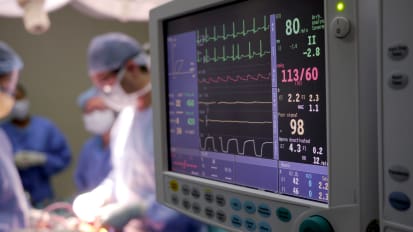Charles Murray, MD

Dr. Murry is a cardiovascular pathologist whose clinical interests span ischemic heart disease, cardiac transplantation, atherosclerosis, heart failure, cardiomyopathy, valvular disease and non-atherosclerotic vascular disease.
Dr. Murry’s research interests center on stem cell biology and cardiovascular diseases. His laboratory studies pluripotent human stem cells (embryonic stem cells and induced pluripotent stem cells) and also carries out some adult stem cell biology. They use differentiating stem cells as systems to understand molecular regulation of cardiovascular development, and they use tissue engineering approaches to learn the rules for tissue assembly and growth. They use induced pluripotent stem cells to model genetic diseases such as cardiomyopathy in vitro. A large portion of the lab’s efforts are directed at harnessing stem cells to promote muscle regeneration of the injured heart.

